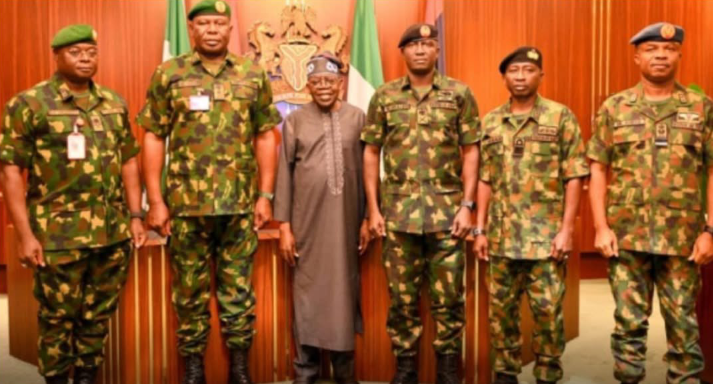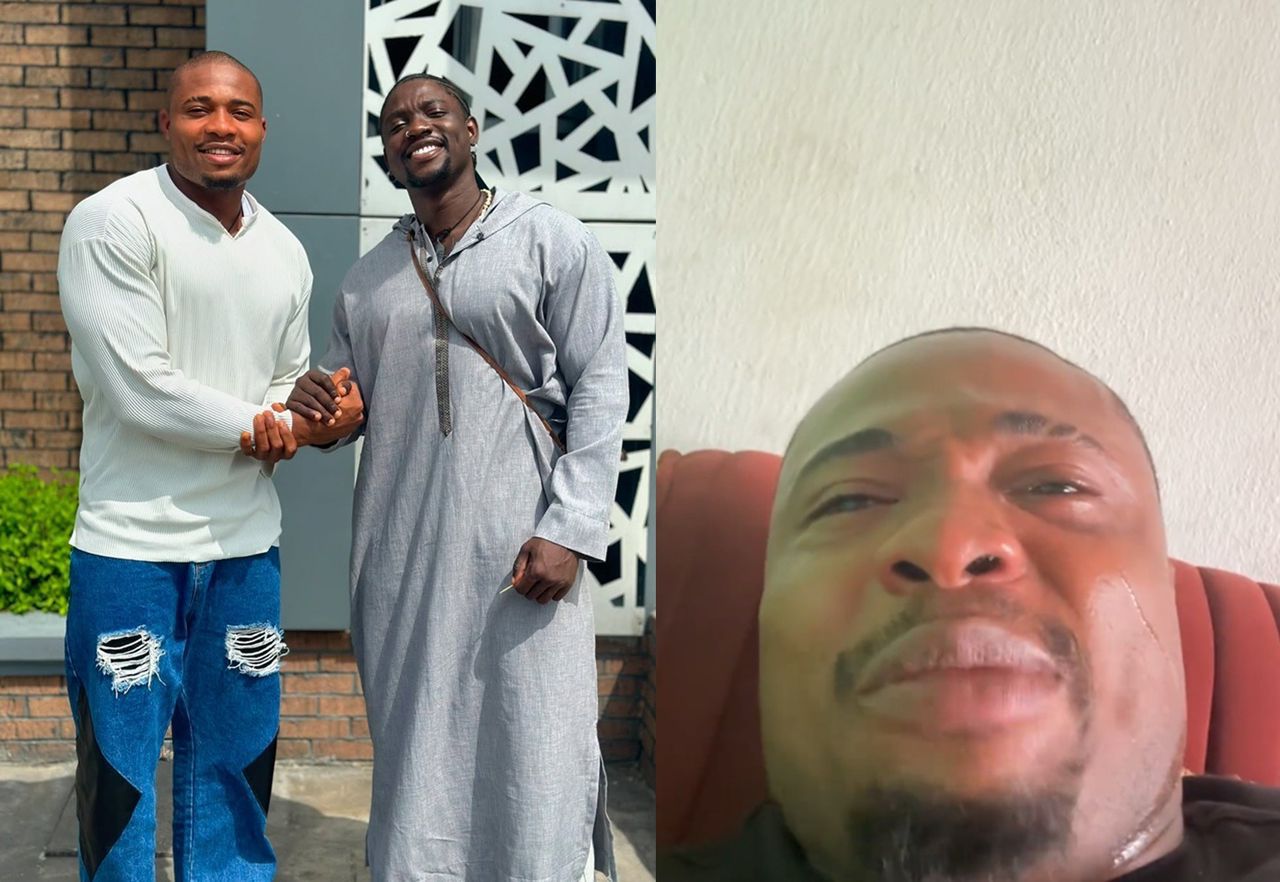
Tinubu’s Shock Order Reshapes Nigeria’s Security Landscape as Police Withdraw from VIP Protection
President Bola Ahmed Tinubu has ignited a major shift in Nigeria’s security architecture with his sudden directive ordering the immediate withdrawal of police officers attached to VIPs across the country. The move, announced after a high-level security meeting at the State House, marks one of the most consequential reforms in
President Bola Ahmed Tinubu has ignited a major shift in Nigeria’s security architecture with his sudden directive ordering the immediate withdrawal of police officers attached to VIPs across the country. The move, announced after a high-level security meeting at the State House, marks one of the most consequential reforms in law enforcement deployment in recent years—one aimed at recentering the police force on its core responsibilities amid escalating insecurity nationwide.
The emergency meeting, chaired by the President, brought together the nation’s top security brass, including Chief of Army Staff Lieutenant General Waidi Shaibu, Chief of Air Staff Air Marshal Sunday Kelvin Aneke, Inspector General of Police Kayode Egbetokun, and Director-General of the Department of State Services Tosin Adeola Ajayi. It was convened amid growing fears over rising abd¥ctions, widespread bandit attacks, and the increasing vulnerability of rural communities that have long complained of being left without adequate police protection.
For decades, the use of police officers as personal bodyguards for politicians, business moguls, and other influential Nigerians has been a controversial practice, often criticized for draining manpower from the overstretched force. Many communities have repeatedly lamented that while VIPs move with heavily armed convoys, ordinary citizens in remote villages face attackers with little or no police presence to rely on. On Saturday, that long-standing imbalance was thrust into the national spotlight as Tinubu issued a decisive order intended to reverse it.
According to the statement released by his Special Adviser on Information and Strategy, Bayo Onanuga, the President made it clear that officers must now return to “their primary law-enforcement duties,” with immediate effect. VIPs who still require escorts, the President said, will no longer be guaranteed police protection and must instead seek armed security personnel from the Nigeria Security and Civil Defence Corps (NSCDC), an agency traditionally tasked with protecting critical national assets.
The announcement sent ripples across the country, sparking reactions ranging from applause to uncertainty. Supporters of the new directive say it is long overdue, noting that Nigeria’s police-to-citizen ratio remains one of the lowest in the world. With only a fraction of officers available for conventional duties, the argument has long been that policing has been tilted in favour of the influential, leaving the larger population exposed. The President’s order, analysts say, finally acknowledges the structural imbalance that has hindered effective crime prevention and response.
Onanuga emphasized that the President is determined to strengthen security at the grassroots, a goal he believes cannot be achieved if officers remain tied to personal protection details. “In view of the current security challenges facing the country, President Tinubu is desirous of boosting police presence in all communities,” he said. He also noted that many police stations, especially in rural areas, operate with “few policemen,” making it nearly impossible to conduct patrols, track criminals, or respond promptly during emergencies.
Beyond the withdrawal of officers from VIP protection, Tinubu has approved the recruitment of 30,000 additional police personnel—a significant figure that signals the administration’s commitment to expanding manpower. The federal government is also working with state governments to upgrade police training facilities nationwide, in what appears to be a broader effort to modernize the force and improve its operational capacity.
However, questions remain over the implementation of the sweeping order. For one, the transition of security responsibilities from the police to the NSCDC for VIP protection is uncharted territory. While the NSCDC has grown significantly since its establishment, critics wonder whether it currently has the structure, training, and personnel strength to immediately step into the role previously dominated by the police. Others express concern about the possibility of VIPs exploiting loopholes or resisting compliance, especially in a country where political influence often bends the rules.
Police insiders also say the reallocation of officers will require a comprehensive redeployment strategy to avoid overstretching existing units. Many rural stations have operated on skeleton staff for years, with some having fewer than a dozen officers responsible for vast areas. Bringing officers back from VIP assignments may ease the pressure, but observers argue that without improved logistics, mobility, and intelligence capacity, the presence of additional personnel alone may not resolve deeply rooted security problems.
Still, among Nigerians who live in areas plagued by banditry and kidnappings, the announcement offers a sense of hope. Communities across states like Kaduna, Niger, Zamfara, Katsina, and Plateau have often been left defenseless during attacks, sometimes waiting hours for security reinforcements that arrive too late. For residents of such regions, the possibility of more uniformed officers returning to duty is a welcome development—one they hope will translate into quicker response times and enhanced safety.
Some security experts believe the decision might also serve as a wake-up call for the political class, many of whom have become accustomed to traveling with large convoys of armed officers. Under the new directive, their reliance must shift to the NSCDC, potentially freeing the nation’s premier police force to focus on the everyday crimes affecting millions rather than a privileged minority. This, analysts say, could begin to correct a culture where public officials enjoy far more protection than the citizens they serve.
Yet, even with widespread praise, the directive poses significant challenges. If not carefully managed, it could create a temporary vacuum in VIP protection, prompting fears of targeted attacks on public figures. There is also concern that the NSCDC, suddenly saddled with heightened responsibilities, could suffer the same manpower shortages that have long plagued the police. And for police officers who have spent most of their careers attached to VIPs—a position often seen as more lucrative—the abrupt shift back to regular policing may require adjustments they are not immediately prepared for.
Despite the concerns, the significance of Tinubu’s order cannot be overstated. It represents a bold attempt to redefine national security priorities and confront the uncomfortable reality that too few officers have been available to protect the general population. Whether the reform becomes a turning point for Nigeria’s fragile security environment or simply another policy that fades without full implementation remains to be seen.
For now, the directive has set the stage for a nationwide realignment in the deployment of security resources. The coming weeks will reveal how quickly the police leadership can operationalize the President’s instructions, how VIPs will adapt to the new rules, and whether Nigerians in underserved communities will finally see the increased police presence they have long demanded.
Tinubu’s move signals his intention to reassert the true purpose of the Nigeria Police Force: to protect the citizens and uphold the law. As the country grapples with rising threats, the decision marks a dramatic and historic attempt to restore balance, strengthen community safety, and rebuild public confidence in the institutions meant to safeguard the nation.
Share this post
Related Posts

“I Like to Smoke Igbo”—Nigerian Lady Shocks Trolls as She Flaunts Diamond Engagement Ring and Apple Gifts From Fiancé
In a bold clapback that’s now going viral across Nigerian social media, a young lady...

Rita Dominic Applauds Nancy Isime’s Upbringing: \'Whoever Raised Her Did a Fantastic Job\'
Nollywood veteran and screen icon Rita Dominic has once again captured the hearts of fans...

VeryFairMan Bows Out of #FreeVDM Protest in Port Harcourt Amid Health Crisis
In a surprising and heartfelt announcement that sent ripples through social media on Sunday, popular...